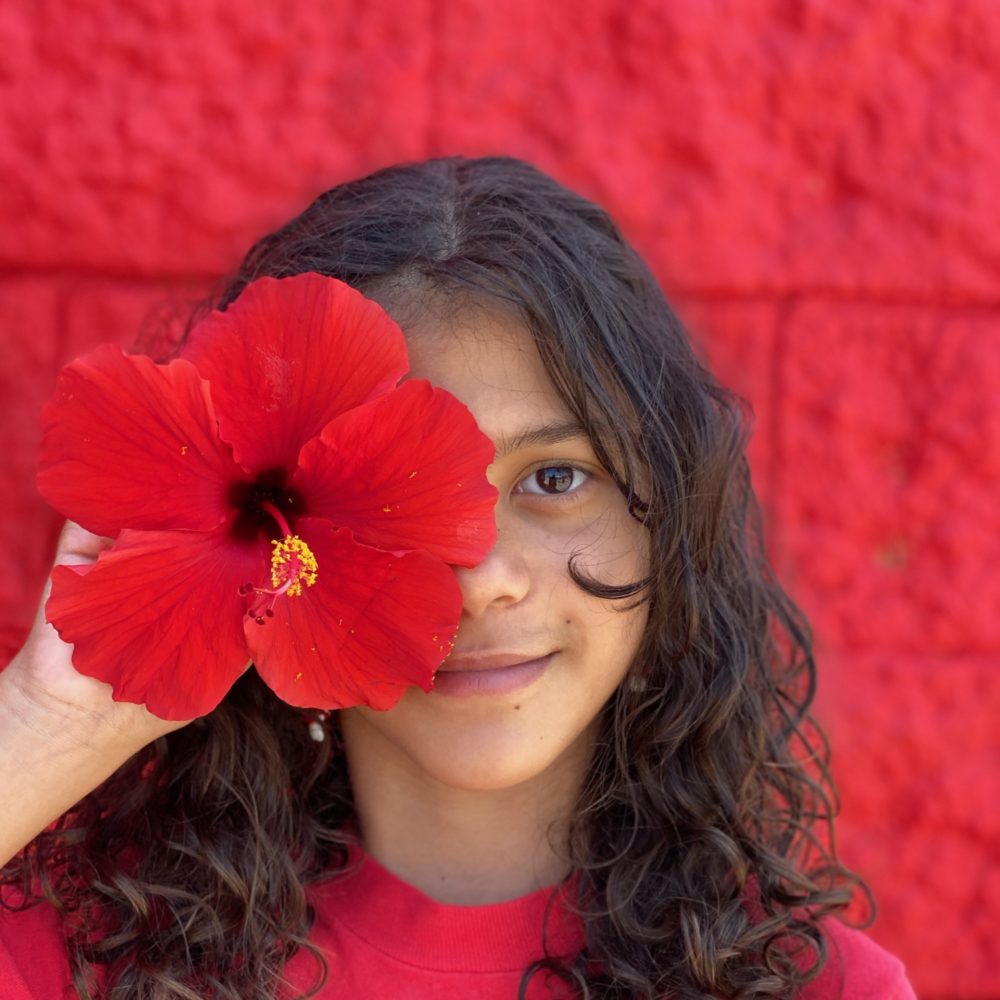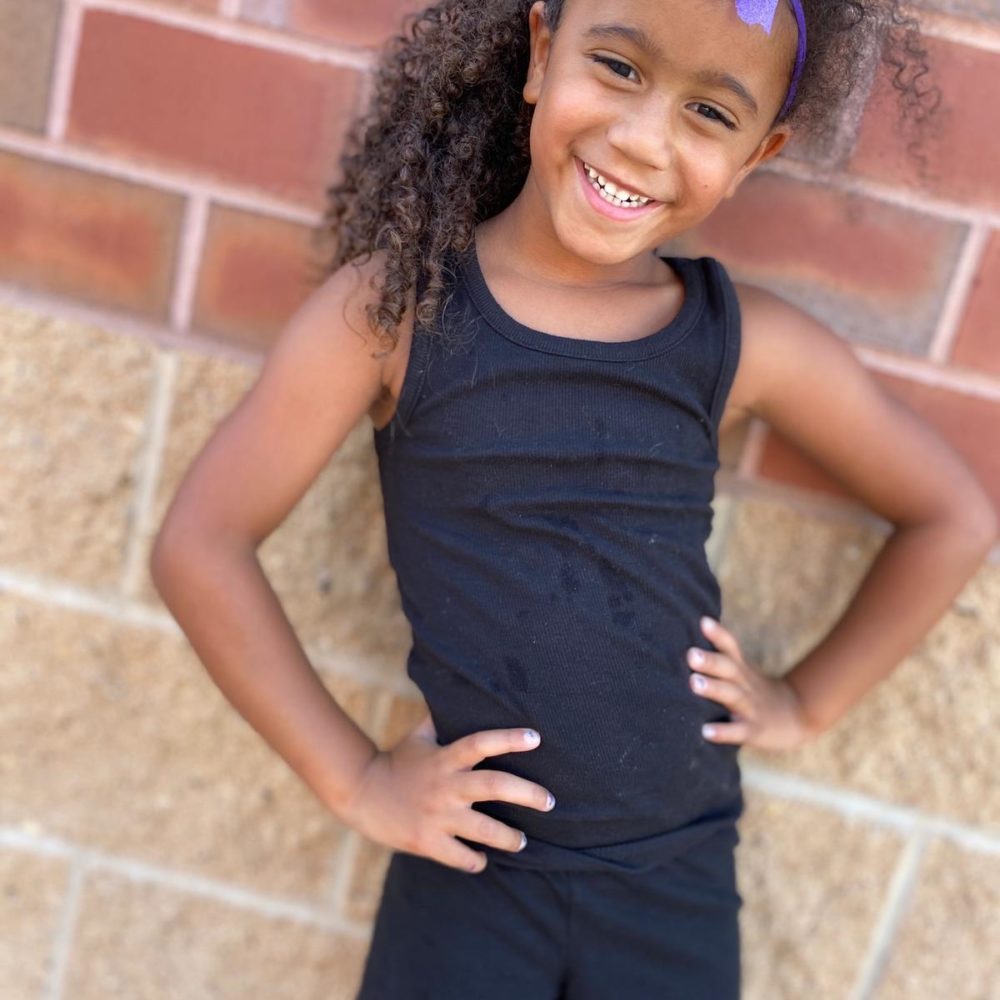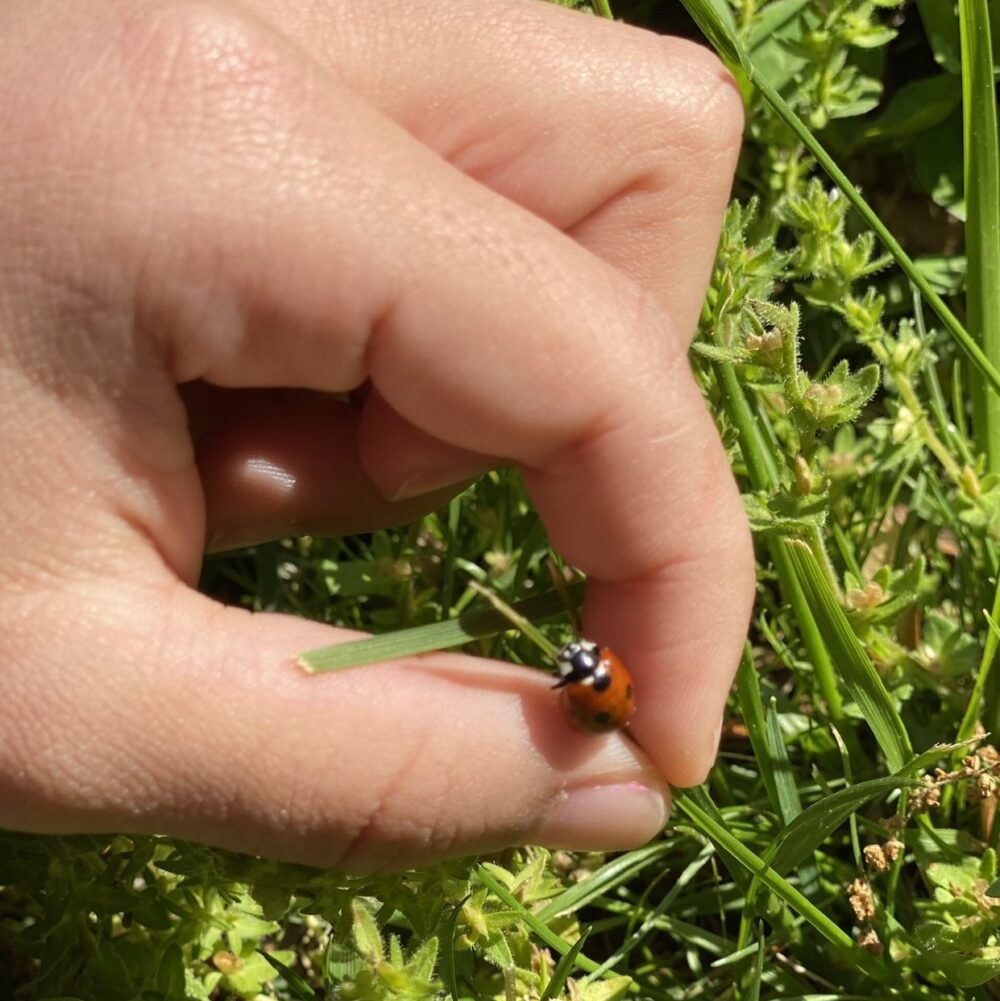YELLOW’s Summer of Innovation (SOI) empowers young people to make positive change in the world. The competition challenges students nationwide “to find a problem worth solving, and to design a solution that’s creative, impactful, and feasible.” A panel of judges, including Pharrell Williams and leaders in the business and nonprofit sectors, selects the projects that will receive the funding and support to become reality.
Sophia, a junior in St. Louis, Missouri, participated in the competition last summer. Having already received recognition in national DECA and debate competitions, she was undaunted by the prospect of a 3-minute pitch. Nonetheless, she was surprised when her project won and grateful for the publicity it earned her Spreading Smiles campaign. Now, almost a year after beginning SOI, she took the time to talk with us about the passion and altruism that fuels her work.
How would you describe Spreading Smiles to someone who’s never heard of it? What are you doing and why is it important?
The primary goal is to raise money with Spreading Smiles and donate it to Operation Smile, so I’ll start off with Operation Smile.
Operation Smile is a medical nonprofit, and its primary initiative is to raise awareness for cleft conditions. This has a huge connection to me because my aunt was born with a cleft condition, and it took her a few years actually to get surgery. So another thing that Operation Smile tries to accomplish is to increase medical accessibility.
Why did you decide to use T-shirts as your fundraising product?
The whole idea with selling shirts is that, even if someone doesn’t purchase it, they might see that it says Operation Smile on there, and they might look it up, so the primary incentive is to raise awareness for cleft conditions.
What was your process for joining Summer of Innovation? How did you find out about the competition and decide to participate?
Because of COVID, I had so much time on my hands. I’d heard about Operation Smile before, and I’d done some research, but it was the time to actually take action. I coordinated some service projects like making sock monkeys and get well cards for Operation Smile patients. Then my Operation Smile student programs associate, Jacquie—she’s the best—told me, “Hey, Team YELLOW, which is a nonprofit that’s sponsored by Pharrell Williams, is hosting a competition called Summer of Innovation.”
I decided, why not? I’m not doing anything else, and it’s a three-minute pitch, so just give it a shot. And I wasn’t expecting to win, but I really appreciate the platform that YELLOW has given me.
Just the idea that there are people out there, super influential people, and your lives have intersected at some point in time.
As you first started working on your pitch, what excited you about SOI?
One thing that I really liked about SOI was it asked you to identify an issue that resonated with you and how you would solve that problem. It’s just the idea that you have the ability to make an impact. SOI was encouraging the people who competed in it to instill a sense of altruism: how can you give back to your community?
How did you see the possibilities opened by this opportunity?
First off, it’s just getting my voice out there. I mean, the competition was judged by Pharrell Williams—why not go for it? Even if he doesn’t remember me or know who I am, he still listened to me, and he was still able to take something away from it, and that alone would probably teach someone about cleft conditions. It’s probably the closest encounter I’ll ever have with a celebrity. Also the other judges—they’re powerhouses in the business world. It was an incredible opportunity. Just the idea that there are people out there, super influential people, and your lives have intersected at some point in time.
What impact does it have for you to know that the judges ultimately chose your project and that Pharrell was involved in that process?
It is sort of an agent of change. I think the entire content of SOI is, “Young people, you have a voice and you can use it.” It’ll be cliché, but it was very inspiring to know that your message has value to it. Obviously, there’s no way to approach creating a solution that’s infallible, but at least you know there’s someone to back you up who has heard your message.
Have you had other experiences where you were able to see the potential impact you could make?
Over the summer, with all this time on my hands, I created a gallery of mental health resources, as mental health is something that I am very passionate about, and I’ve always looked into ways to boost accessibility and increase conversation, destigmatizing it as a whole. The gallery was nine pages long, and one of my favorite things about it was that it included stuff for teachers because, with COVID, I cannot commend teachers enough for everything they did to accommodate students and their individual needs. That list of resources was something that was sent out to teachers on the district-wide level, and I received a lot of positive feedback on it, and I even extended it to the city-wide level. I’m not looking for compliments by any means, but when someone does extend their regards, it is the best feeling in the world because it hints that you’re going in the right direction. Every time you receive a bit of positive feedback, it adds to the jigsaw puzzle of “this is a really good thing, and it’s actually helping.
It seems important to you to contribute to sharing information and raising awareness. How do you see the value of that work?
Simply for the very banal reason that I’m a high school student. I’m painfully aware that my platform is limited. But if you don’t practice or you don’t try, nothing is going to happen. So you have to at least put your effort into it. And with Pharrell Williams, he was able to elevate my platform.
I don’t want to belabor the point that I am all for raising awareness because I really am passionate about that, but in the world we live in right now, being a bystander is not going to get anything done. You see so many other inspiring figures, just other youth figures—people at my own school, even. They’re a source of inspiration that you can always strive to be better.
How does always striving to be better affect your work with Spreading Smiles and how you approach other projects?
I guess in the sense of striving for perfection, that’s not always the best thing because the term perfect evolves. But it’s just that there’s always room to make someone’s day. There’s always someone out there. And it’s not possible to get every single person, but you can make a ripple in the ocean, and that can go a long way.
I can see this thread of altruism running through your thinking and your work. What does that mean to you, and why does it feel so important?
I would say my parents definitely instilled an altruistic nature and sense of benevolence in me since I was a little kid. My mom—she used to have a restaurant, and it was a family-oriented restaurant, so I was always there. Whenever she had a little kid or a toddler, she would always go to the back—then a few months later, she would send me to the back—and we had this huge walk-in freezer with all our other goods, and she had these little ice cream cups with the wooden spoons, and she’d take one out. With all of her customers, she would always talk with them and ask how their day was. She had lifelong customers because she fostered such a positive relationship with them. But with the little kids, she’d ask the family how their meal was, and she’d hide the ice cream cup behind her back. Then she would bring it out, and the kid—the smile on their face—there was nothing like it. It was a very simple act, but that would make someone’s day.
That seems so related to Spreading Smiles. Now, as you look back on SOI, how do you feel about your experience?
Looking back on it, I am so grateful that I did SOI because Pharrell Pharrell Pharrell, but also because it was an integral component of my work with Operation Smile as a whole. Originally, all of my work was on the local level with my community, but now I can hopefully build it up to a larger network. It’s something that actually I do care a lot about, so I hope that even in college and out of college, it is something I carry on for all of life.
In the world we live in right now, being a bystander is not going to get anything done. You see so many other inspiring figures, just other youth figures—people at my own school, even. They’re a source of inspiration that you can always strive to be better.
You keep coming back to Operation Smile and especially Jacquie. How did having a mentor support, empower, and open possibilities for your project?
Jacquie’s the best. She’s my rock. I can text her anytime, and she’ll give me a response in the next two hours: “Don’t even worry about it. I’ll take care of it.” I can’t thank her enough. She was the one who introduced SOI to me, and she was also the one, when I had my brain dump, who listened to me.
I also really appreciate the fact that she’s fostered a sense of trust. She knows I care about this a lot, so she trusts I will do my best to make this come to fruition. She gave me some pointers, but she wasn’t micromanaging everything—she just did it in the best way possible. At the end, when I received that I won, I flew to my phone and texted, “Jacquie, I won SOI!” She has just been like my guardian angel through the whole thing.
What advice would you give other young entrepreneurs?
I’m not an entrepreneur by any means, but if you’re going to pursue something in that field, you really just have to give it your all. Be audacious. Push the status quo. Challenge it in any way that you can. Because there’s always going to be someone who is just as hardworking as you or just as nice as you, but if you go the extra mile, you could leave a resounding impact.
How do you see the relationship between Spreading Smiles and this idea of challenging the status quo?
Even if it wasn’t challenging the status quo per se, I tried to provide a unique perspective with the personal connection to my aunt and just my overall ardent passion for Operation Smile, and I think that is what helped me.
You’ve talked about being ardent, being passionate, and having a personal motivation. How has that fueled your work?
If you don’t love what you’re doing, you could probably go at it for some time, but that flame just fizzles out. While I haven’t started Spreading Smiles in its full capacity, it’s not something that I dread—I’m genuinely looking forward to it. It doesn’t really matter to me how much I end up making. I’m in high school, I don’t know that much, so I think this is a live and let learn experience. Obviously, it would be nice to make money to donate for surgeries for Operation Smile, and that is the main goal, but I don’t need an impetus to keep me going because the whole idea of it is so exciting. I’m really excited to see what’s to come. Even if I don’t end up making millions, I know I’m going to learn a lot.



